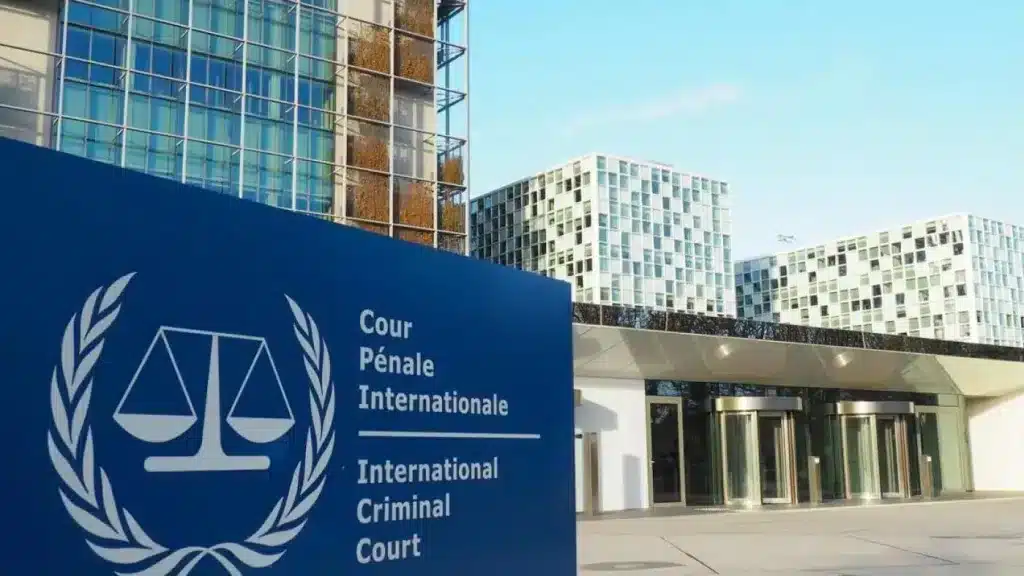
Permanent premises of the International Criminal Court in The Hague, the Netherlands. Photo: Human Rights Watch.

Orinoco Tribune – News and opinion pieces about Venezuela and beyond
From Venezuela and made by Venezuelan Chavistas

Permanent premises of the International Criminal Court in The Hague, the Netherlands. Photo: Human Rights Watch.
By Pavan Kulkarni – Sep 23, 2025
Accusing the court of selective targeting and incompetence in “prosecuting established war crimes, crimes against humanity, [and] genocide”, the AES announced its exit months after deciding to establish the Sahelian Criminal and Human Rights Court (CPS-DH).
The Alliance of Sahel States (AES) announced its immediate withdrawal from the International Criminal Court (ICC) on Monday, condemning it as a tool of imperialism that is silent about the worst crimes by the West and its allies while selectively pursuing its opponents.
Having ratified the Rome Statute in the early 2000s, the AES’s three member countries—Mali, Burkina Faso, and Niger—have been members of the ICC since.
“However, over time,” states an AES communiqué issued on September 22, “they have come to observe that this jurisdiction has transformed into an instrument of neo-colonial repression in the hands of imperialism, thereby becoming a global example of selective justice.”
“The ICC has proven incapable of addressing and prosecuting established war crimes, crimes against humanity, [and] genocide”, it added.
Maintaining a “disconcerting and complacent silence regarding the perpetrators of such crimes, it has relentlessly pursued certain actors who do not belong to the closed circle of beneficiaries of institutionalized international impunity—even in violation of its own Statute,” continued the AES statement.
Exiting the ICC “to fully assert their sovereignty,” AES member states “have decided to resort to endogenous mechanisms for the consolidation of peace and justice,” adds the communiqué.
The “endogenous mechanisms” are already in motion. At a meeting in late May, the justice ministers of the three countries resolved to establish the Sahelian Criminal and Human Rights Court (CPS-DH).
Inspired by the international courts, the CPS-DH, however, will be grounded in local realities, immune to “the negative influence of imperialist powers on the organization and functioning of certain regional and international jurisdictional bodies,” the AES maintains.
Authorized to judge cases of terrorism and its financing and serious offenses such as war crimes, crimes against humanity, and genocide, the CPS-DH, unlike the ICC, will also have teeth, with a maximum-security prison under its jurisdiction.
Neo-Colonialism Opens New Chapter of Struggle in West Africa
This is to be complemented by the creation of a unified database of those accused or convicted of serious crimes, with a digital platform to share legal information.
In the throes of a war with a plethora of terror groups allegedly aided by France, these steps aid the joint effort of the militaries of the Sahelian neighbors on the frontline of the struggle against French neocolonialism in Africa.
Between 2020 and 2023, regimes propped up by France in its former colonies of Mali, Burkina Faso, and Niger were ousted in popular military coups supported by the mass protest movement against French military deployment and economic domination of their countries.
Expelled from Mali and Burkina Faso in recent years, France refused to withdraw its troops when ordered out of Niger in early August 2023. When France threatened war, Mali and Burkina Faso came to Niger’s defense, signing a military pact that evolved into the AES.
The alliance’s member states have since exited the French neocolonial institution of the Economic Community of West African States (ECOWAS), and the AES has adopted a common flag and anthem. Its member states have opened their borders, permitting free movement of citizens between the three countries.
Exiting the ICC and establishing a common Sahelian court is another step in this direction—moving out of the orbit of institutions dominated by Western colonial powers while integrating more coherently within.

Journalist